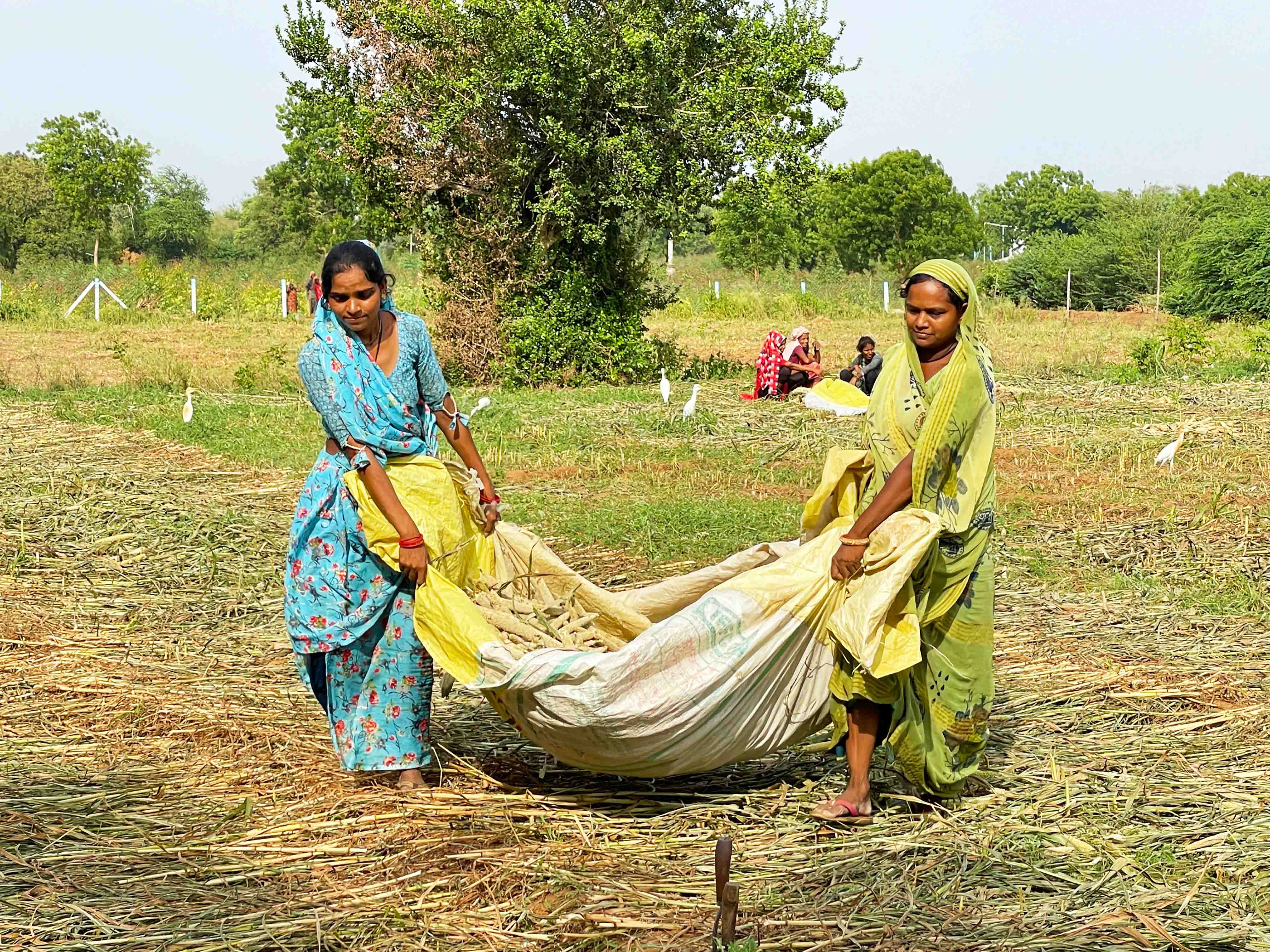Pioneering initiative protects women workers in India during record-breaking heatwave
Published
Read time
The Howden Foundation funds a new financial product that pays low-income workers when temperatures hit 40°C – protecting livelihoods, saving lives and promoting dignity.
- The Howden Foundation proudly supports innovative Women’s Climate Shock Insurance and Livelihood Initiative (WCS)
- Recent extreme heat in India triggered insurance and cash payments of £470,000 (almost $600,000) across Rajasthan, Maharashtra and Gujarat
- Howden Foundation funding supported 50,000 women with rapid payments of almost £4 (US$5) for lost income, giving them the choice not to work in dangerous temperatures
Every year, India’s heat season starts in April. For three months, temperatures soar before monsoon rains bring cooler days.
The summer months have become more intense over the past decade – and in parts of northern India this year the heat has broken records with blistering highs of 50°C and above.
For low-income women workers, who often work outside for £2-3 (US$3-4) a day, things can get desperate.
They suffer from health problems including chronic rashes, dizziness, miscarriages, infections, and burns. Some women lose their lives.
They also lose crops and other merchandise or are forced to work reduced hours – losing up to 50% of their income. This can mean economic disaster for their households.
“Increased temperatures have a big impact on our income. Work suffers due to the heat. If we don’t work, what will we eat,” said farmer Jashodaben Ravjibhai Parmar.
Using insurance for climate resilience
This year, Parmar will not be forced to work in all weathers, thanks to income supplements she gets when temperatures soar.
She’s one of 50,000 women workers who have signed up for lifesaving financial protection when it’s dangerously hot.
This innovative financial product is at the heart of US-based nonprofit Climate Resilience for All’s Women’s Climate Shock Resilience Insurance and Livelihoods Initiative (WCS) and is proudly supported by the Howden Foundation.
When extreme temperatures hit earlier this year, it triggered insurance and cash payments in 22 districts across the states of Rajasthan, Maharashtra and Gujarat totalling some £470,000 (almost $600,000).
This pioneering approach to climate resilience and adaptation launched as a pilot in 2023, though a partnership between Climate Resilience for All and the Self-Employed Women’s Association, a national trade union in India with 2.8 million women members. The initiative comprises cash payments for lost income, insurance and an early warning system.
When temperatures are projected to reach dangerous levels, women receive a warning message on their mobile phone. When they reach the threshold, insurance payments are triggered.

What's next?
Currently, the early warning system is in the pilot phase, and Climate Resilience for All say it will be rolled out fully over the next year.
In 2024, when temperatures reached 40°C, women received additional cash assistance of almost £4 (US$5).
This experimental new payment was added to the initiative based on feedback from women workers. Joining the initiative costs them the equivalent of day’s pay and with such precarious finances the guarantee of getting something back helped mobilise women to sign up.
It’s this part of the initiative that the Howden Foundation has helped to fund. The foundation, which is an independent charity funded by Howden, supports communities to foster resilience to extreme heat and drought.
“As a foundation, we look to support those communities who have contributed the least to the climate crisis and are affected the most,” said Clare Ballantine, Head of the Howden Foundation.
“Inspired by the innovative mindset of our parent company, we see our role as catalytic in supporting this kind of innovation and testing of new ideas and models, and backing organisations we believe in,” she added.
The women say they spend the money on essentials like grain, medicine and rent.
It’s given them more food security, new credit worthiness and the ability to pay their children’s school fees.
They also say it’s given them a renewed sense of dignity. “[Without the initiative] we have to work no matter what. But if there is extreme heat, and if we have an insurance, we can feel some sense of support if we choose not to go out,” said Parmar.